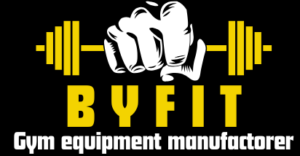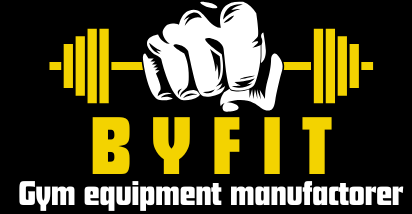Importing gym rubber flooring to Australia seems like climbing a mountain, right? You have to think about quality, cost, and a bunch of rules. It can feel like a real problem.
The simple answer is no, you don’t typically need a special license just for importing gym flooring. But, you do need to follow a lot of general import rules, plus some that are very specific to rubber and gyms. These cover certifications, biosecurity, safety, taxes, and documents.
](https://www.byfitgear.com/wp-content/uploads/2025/03/1-1.jpeg)
It is tough! But knowing the steps before makes it a lot easier. We’ll go through each requirement, making sure you’re ready to bring in that top-quality flooring without any hold-ups.
Do I need a special license to import gym flooring to Australia?
Importing gym flooring sounds like it should need some super-special permit. Feeling stressed about secret paperwork? That’s a normal worry for any importer.
You generally don’t need a specific license just to import gym rubber flooring into Australia. However, you do need to be registered as an importer and have an Australian Business Number (ABN)1. Also most imports need an Import Declaration2.
](https://www.byfitgear.com/wp-content/uploads/2025/03/2-1.jpeg)
Becoming a Registered Importer
Think of it like getting a basic membership before you can use the gym. To import goods commercially, you need to:
| Step | Description |
|---|---|
| 1. Get an ABN | Register for an Australian Business Number[^3 (this is your basic business ID in Australia). |
| 2. Register (if needed) | Register with the Australian Border Force3, though this is often done by your customs broker4. |
It’s not hard, it’s like setting up any business. But skip it, and you’re stopped at the door! BYFIT can help, too. We know the common snags in the process. Contact us at [email protected].
Are there mandatory certifications (e.g., ISO, BCA compliance5) required?
Thinking all rubber is the same? That’s like saying all workouts give the same results! You need the right certifications.
There aren’t always mandatory certifications specifically for the rubber itself, but there are building codes and safety rules that your flooring might need to meet. This depends on how and where it’s used. Think BCA compliance (Building Code of Australia) if it’s part of a building project.
](https://www.byfitgear.com/wp-content/uploads/2025/03/3-1.jpeg)
Understanding Certification Needs
It is all about where the floor is used and who it is for.
| Certification Type | What It Means | When It Matters Most |
|---|---|---|
| ISO 90016 | Shows the supplier has good quality management systems. | Always good, shows they care about consistent quality. |
| BCA Compliance | Means the flooring meets Australian building standards for things like fire safety. | Essential if the flooring is part of a new building or major renovation. |
| "Product Certification7" | A general term – could mean many things, depending on the specific testing done. | If a client (like a gym owner) asks for it, you need to know what they require. |
Don’t guess! Always ask your supplier for details, and check what your end-customer (the gym, etc.) needs. BYFIT flooring meets many international standards, making this part easier.
What biosecurity rules apply to rubber flooring imports in Australia?
Australia is like a super-clean gym – they don’t want any dirty equipment (or pests!) coming in.
Rubber flooring can be subject to biosecurity rules8. This is because it could carry things like seeds, insects, or soil that could harm Australia’s environment. Cleanliness is the key.
](https://www.byfitgear.com/wp-content/uploads/2025/03/4-1.jpeg)
How to ensure flooring meets biosecurity cleanliness standards9?
Think of this as the "deep clean" before your flooring gets to enter.
| Step | Action |
|---|---|
| 1. Cleanliness | Make sure the flooring is new and clean – free of any dirt, plant matter, or insect traces. |
| 2. Check Packaging | The packaging (like wooden pallets) also needs to be clean and may need treatment. |
| 3. Documentation | Your supplier should provide a declaration that the goods meet these cleanliness standards. |
It’s not just the rubber, it’s everything around it. BYFIT ensures our products and packing meet these rules.
Are there specific safety standards for gym flooring in Australia?
Imagine a gym floor that’s slippery or goes up in flames easily – a total disaster, right? That’s why safety standards exist.
Yes, there ARE general safety standards that often apply to gym flooring. These can include things like slip resistance (to prevent falls) and fire resistance10 (to slow down the spread of fire).
](https://www.byfitgear.com/wp-content/uploads/2025/03/5-1.jpeg)
Do Australian rules require fire resistance or slip resistance11 testing?
These are the big ones, like the core exercises of safety.
| Test Type | Why It Matters | How It’s Measured (Common Standards) |
|---|---|---|
| Slip Resistance | Prevents falls, especially when people are sweating! | AS 458612 (Australian Standard) is the most common. |
| Fire Resistance | Gives people time to escape in a fire, and limits how quickly the fire spreads. | AS/ISO 9239.1 (reaction to fire) is often used. |
Don’t just take a supplier’s word for it – ask for test reports that show the flooring meets these standards
What taxes and duties apply to imported gym flooring?
Nobody likes surprise fees, it’s like extra sets when you’re already exhausted!
You’ll likely pay GST (Goods and Services Tax)13 on imported gym flooring. There might also be customs duties, depending on where the flooring is made and if there are any trade agreements14.
](https://www.byfitgear.com/wp-content/uploads/2025/03/6-1.jpg)
How do I calculate GST for imported rubber flooring?
GST is like the tax you add to almost everything in Australia.
| Calculation Step | Explanation |
|---|---|
| 1. Value | Start with the value of the goods (what you paid for them). |
| 2. Add Costs | Add the cost of shipping, insurance, and any customs duties15. |
| 3. GST Rate | Multiply the total by the GST rate (currently 10%). |
That’s your GST! Remember, duties depend on the specific type of rubber and its origin. BYFIT’s slogan is, “BYFIT —Your Trusted Partner for Gym Rubber Flooring.” We work with many countries and can provide you a hand.
What documents are needed for importing gym flooring to Australia?
Paperwork can be the most boring part of the process, but it is important.
You’ll need the standard import documents, like a commercial invoice, packing list, and bill of lading. You might also need a certificate of origin16, especially if you want to claim lower duty rates under a trade agreement.
](https://www.byfitgear.com/wp-content/uploads/2025/03/7-1.jpeg)
Does the supplier need to provide certificates of origin?
Think of it like a passport for your flooring!
| Document | What It Is | Who Provides It |
|---|---|---|
| Commercial Invoice | A bill from the supplier, showing the price, quantity, and type of goods. | Supplier |
| Packing List | Details of how the goods are packed (number of rolls, weight, etc.). | Supplier |
| Bill of Lading | A receipt from the shipping company, showing they have the goods. | Shipping Company |
| Certificate of Origin | Shows where the goods were made (not just shipped from). | Supplier (usually) |
If you want lower duties under a trade deal (like one between China and Australia), the certificate of origin is key.
What quality certifications do Australian gym owners look for in rubber flooring?
It’s not enough for you to be happy, the gym owner needs to be confident, too!
Australian gym owners often look for things like durability, shock absorption, and non-slip properties. They might also ask about certifications like GECA (Good Environmental Choice Australia), showing it’s a more sustainable product.
](https://www.byfitgear.com/wp-content/uploads/2025/03/8.jpeg)
Is GECA certification recommended for gym flooring?
It’s like a badge of honor for being eco-friendly.
| Certification | What It Shows | Why Gym Owners Like It |
|---|---|---|
| GECA | The product meets certain environmental standards. | Shows they care about sustainability, which can attract customers. |
| General Quality | Things like ISO 9001 (supplier quality) and specific tests for the flooring. | Proof the product is well-made and will last. |
GECA isn’t mandatory, but it’s a big plus!
How should gym flooring be packed for Australian import compliance?
Bad packing can mean damaged goods, and nobody wants that.
The flooring should be packed securely to prevent damage. If wooden pallets17 are used, they need to meet Australia’s rules to prevent pests from coming in.
](https://www.byfitgear.com/wp-content/uploads/2025/03/9.jpeg)
Are fumigation certificates18 needed for wooden pallets?
This is part of that biosecurity17 we talked about.
| Packing Material | Rules |
|---|---|
| Wooden Pallets | Must be treated to kill any pests (often by fumigation or heat treatment). |
| Other Materials | Generally okay, as long as they are clean and don’t pose a biosecurity risk. |
| Fumigation Certificate | If the wood is fumigated, you will need this. It proves they wood is clear. |
You can email ([email protected]) or visit (https://byfitgear.com/) us for more information.
Conclusion
Importing gym rubber flooring into Australia has lots of rules, but it’s all doable. Know the standards, get your documents right, and choose a supplier like BYFIT, who understands the whole process. This makes your importing smooth and successful.
-
Getting an ABN is essential for legal business operations in Australia. This link will guide you through the application process. ↩
-
Understanding the Import Declaration process is crucial for smooth importing. This resource will clarify requirements and procedures. ↩
-
Learn about the Australian Border Force’s responsibilities and how they impact your importing process. This information is essential for compliance. ↩
-
Discover how a customs broker can simplify your importing experience and help you navigate regulations effectively. ↩
-
Understanding BCA compliance is crucial for ensuring your flooring meets Australian building standards, especially for safety. ↩
-
ISO 9001 certification indicates a supplier’s commitment to quality management, essential for reliable products. ↩
-
Product certification ensures that products meet specific standards, which is vital for customer trust and safety. ↩
-
Understanding biosecurity rules is crucial for compliance and ensuring safe imports. Explore this link for detailed guidelines. ↩
-
Learn about the cleanliness standards to ensure your flooring meets Australian regulations and avoids import issues. ↩
-
Fire resistance is vital for safety in gyms. Learn more about the standards that protect lives and property in this informative resource. ↩
-
Understanding slip resistance standards is crucial for ensuring gym safety and preventing accidents. Explore this link for detailed insights. ↩
-
AS 4586 is a key standard for slip resistance. Discover its importance and implications for gym flooring safety by checking this link. ↩
-
Understanding GST is crucial for budgeting your import costs. This resource will clarify its application on imported goods. ↩
-
Trade agreements can lower or eliminate duties. Discover which agreements may benefit your imports by exploring this resource. ↩
-
Customs duties can significantly impact your total costs. Explore this link to learn how they are calculated and applied. ↩
-
Understanding the certificate of origin can help you navigate import duties and trade agreements effectively. ↩
-
Explore the importance of biosecurity measures to protect Australia’s ecosystem and ensure safe imports. ↩ ↩
-
Understanding fumigation certificates is crucial for compliance and ensuring your goods are pest-free during import. ↩

](https://www.byfitgear.com/wp-content/uploads/2025/03/Close-up-of-rubber-flooring-with-a-child-playing-on-it.jpg)

